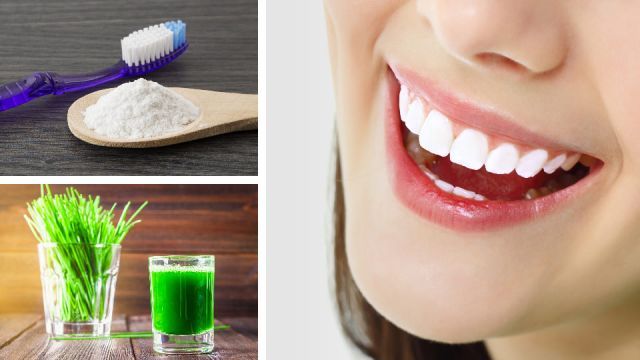
Everyone wants stronger, whiter, healthier teeth. But most of us don’t want to pay an arm and a leg to get that dazzling white smile. Conventional toothpaste might claim to make your teeth whiter on the outside and stronger on the inside, when really it’s just abrading your teeth’s protective enamel and compromising the health of your pearly whites.
Meanwhile, popular whitening treatments like hydrogen peroxide or laser whitening either damage the teeth, or damage the teeth and damage the wallet. It’s fair to say that lofty goals to whiten your teeth should never compromise their strength and vitality, so there’s got to be another option.
And it just so happens that a healthier, happier alternative has been sitting right under your nose this whole time! Many of the foods hiding out in your pantry, chilling in your fridge or perhaps lounging in your freezer are so loaded with mouth-healthy nutrients that they can actually make your teeth not only stronger, but visibly whiter as well. Read on to find out which foods make for stronger, whiter teeth.
1. Baking soda
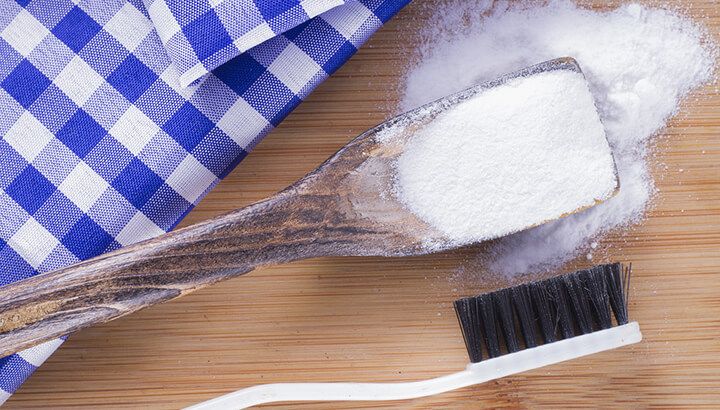
Okay, so baking soda isn’t exactly what one might call a “food” — but it’s 100 percent edible and you probably use it regularly enough in your baking, right? But while baking soda might not be all that enjoyable to munch on, it’s best pals with your teeth.
A 2008 literature review that examined the results from five different studies found that toothpastes containing baking soda were considerably more effective at removing plaque than toothpastes without baking soda. Another study showed that treating teeth with a combination of baking soda and hydrogen peroxide helped teeth to become significantly less yellow.
Now, there are three takeaways from these findings: first, get yourself some baking soda if you don’t already have any. Second, don’t even think about using hydrogen peroxide — it’s simply not worth the risks to your teeth and health in general. And third, consider ditching your toothpaste altogether and simply brushing with straight baking soda. It works surprisingly well, and it’ll whiten your teeth a whole lot faster than any toothpaste ever will.
2. Strawberries
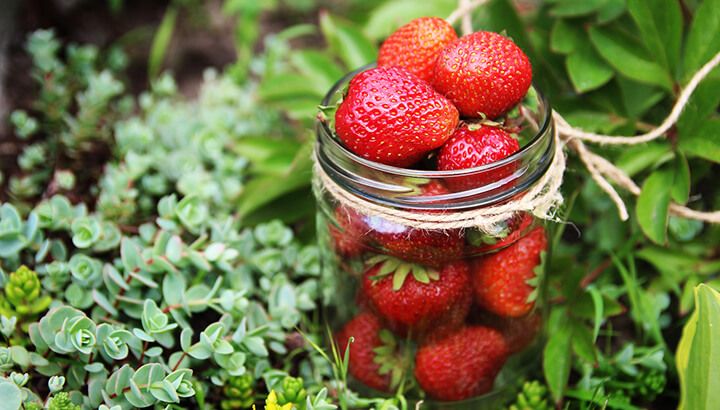
Now we’re getting into tastier territory! Outside of your mouth, strawberries are very prone to staining and a nightmare to clean up, but inside your mouth they have exactly the opposite effect. Strawberries contain malic acid, an enzyme that can help to speed the removal of stains from the surface of your not-so-pearly whites and get them looking whiter, sooner.
3. Carrots
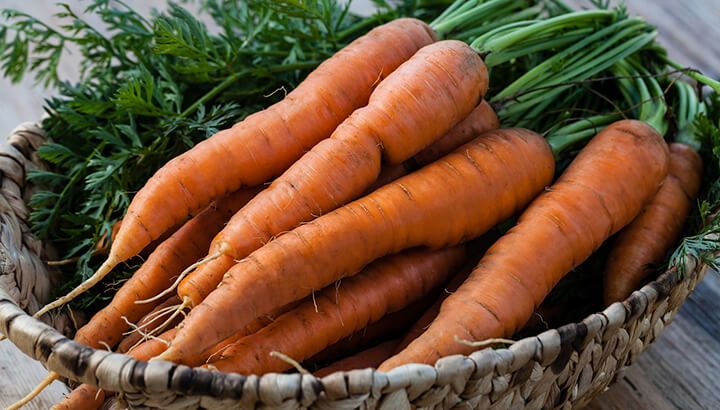
While carrots contain plenty of mouth-healthy antioxidants and therapeutic compounds, it’s the mechanical effect of carrots that really earns them a place on this list. Because of their crunchy, fibrous texture, munching on a carrot is a great way to remove plaque from the surface of your teeth and to dislodge anything undesirable from between the teeth as well. Other so-called “toothbrush foods” include broccoli and cauliflower.
4. Sweet potato
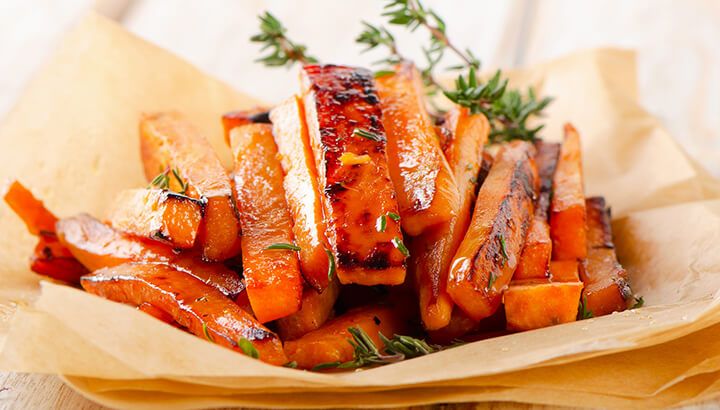
Sweet potatoes are a great way to take a dietary vacation from the overdone potato, and it just so happens that they’re great for your teeth too! Eating sweet potatoes produces an alkalizing effect in the oral cavity, helping to promote healthy bacteria that protect your teeth and prevent corrosion.
5. Onions
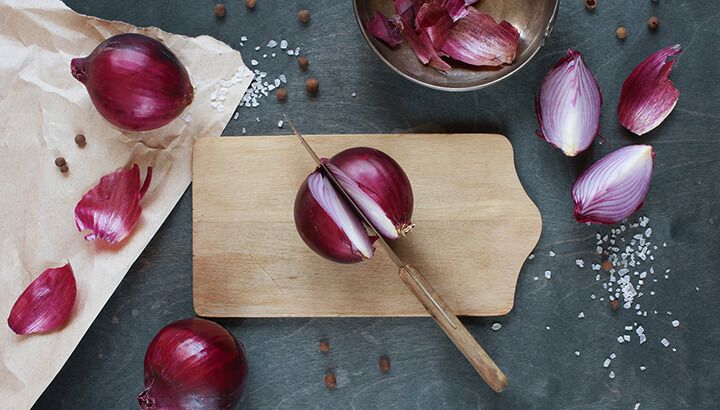
Onions are naturally high in sulfurous compounds that have been scientifically shown to exhibit strong antibacterial effects against several different pathogenic bacteria in the mouth. This means that more onions in your diet should help to improve the health of your teeth, and will probably help them achieve a higher level of whiteness at the same time.
6. Wheatgrass
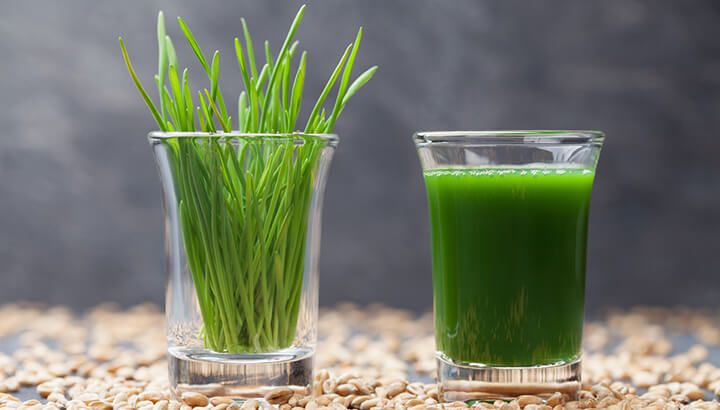
Wheatgrass can help to fight off certain bacterial species that can damage teeth and gums. A shot of wheatgrass can also fight tooth decay itself, so a little more wheatgrass in your life is definitely a good thing for your teeth.
7. Oranges
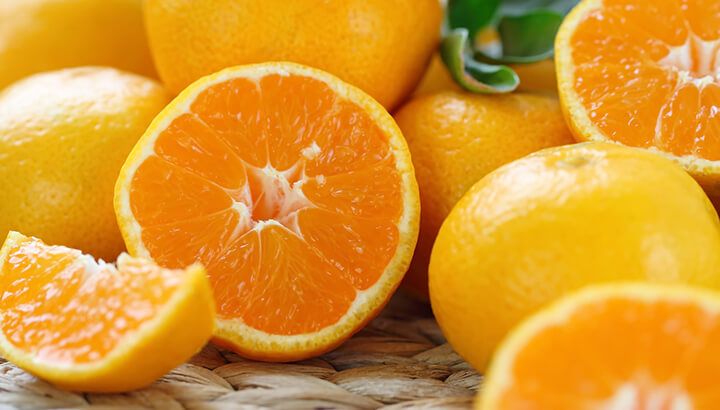
Eating tart, acidic fruits like oranges or pineapples helps make your teeth healthier by encouraging greater saliva production. Saliva is the mouth’s way of not only breaking down the food you eat, but of balancing the pH in your mouth and protecting the surface of your teeth from attack by oral pathogens. More saliva means healthier, whiter teeth, so get puckering!
8. Celery
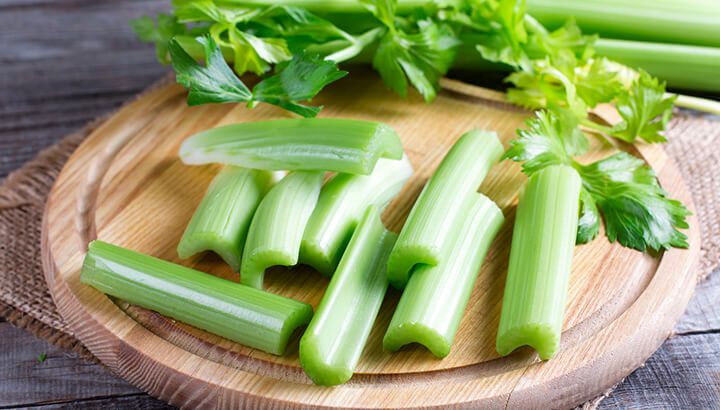
You’ve probably heard about how celery is a dieters best friend, on account of its high water content. That same trait, along with it’s thick, crunchy texture, makes it a great alternative to carrots, broccoli or cauliflower in the “toothbrush foods” department. Munching on a stick of celery is great because it not only cleanses the surface of your teeth, it’s also non-sugary, non-acidic and supports a healthy oral microbiome.
9. Dairy products
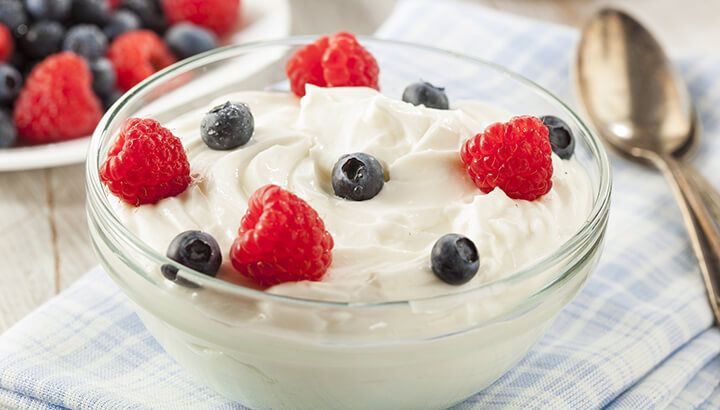
Most of us can remember a time when either the TV or our mom told us to drink our milk up for strong bones and teeth, and that’s mainly on account of the high levels of calcium found in milk and other dairy products. Sure, calcium is important for strong teeth, but there are other beneficial ingredients in dairy products that can work wonders for your pearly whites as well.
A study published in the Journal of Caries Research showed that a specific type of beneficial bacteria found in milk, Lactobacillus rhamnosus, caused a significant reduction in dental caries in a group of 594 children, especially those children in the three to four-year age bracket. Another study showed that eating cheese which contained the same bacterial strain reduced the count of Streptococcus mutans, an oral pathogen known to contribute to periodontal disease, by 20 percent. Yet another study showed that greater yogurt consumption was associated with a lower prevalence of dental caries.
The facts speak for themselves, folks!
— Liivi Hess

